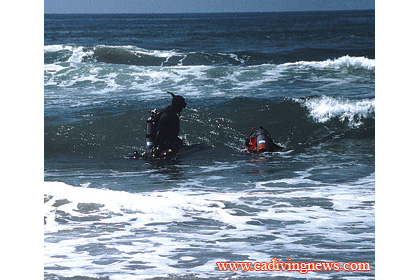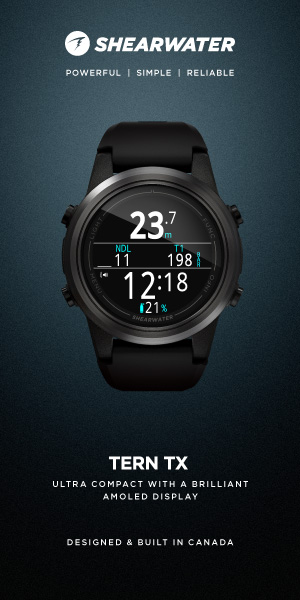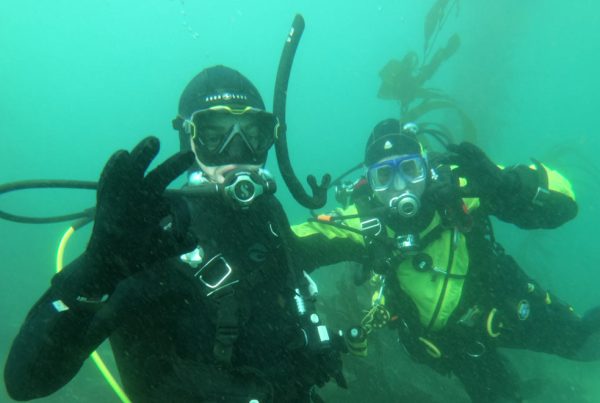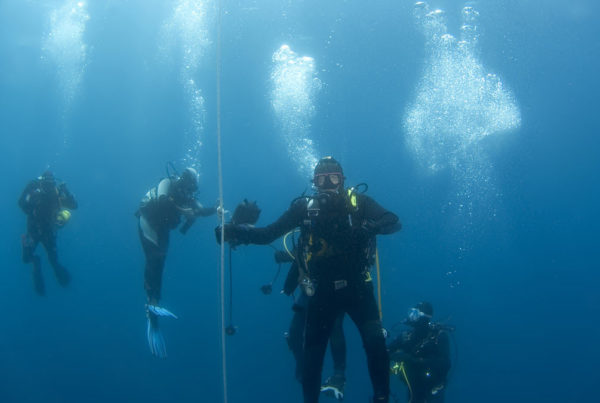Dive long enough, with multiple dives under your belt, and sooner or later the sea will turn on you. Surprises will happen. Seas will suddenly come up, the wind will shift, currents will change 180 degrees, and surf will rise unexpectedly. Then you will find yourself in a difficult if not scary situation.
First and foremost, be prepared. Have a signaling device such as whistle, horn, sausage, mirror or better yet a combination of the aforementioned. Have weights that are easy to dump and, just as important, that you know how to dump them. Have a competent buddy on whom you can rely and have a good communication.
If you find yourself in a difficult situation, remain calm. Assess your situation. Where are you and what tools do you have at hand? Here are some scenarios and possible reactions to consider:
If the current shifts direction or increases dramatically in velocity drop to the bottom and pull yourself along the bottom. Current is typically less intense on the bottom and often there are bottom features to duck behind and rest. This works only, of course, if you have enough air and/or bottom time. Another alternative is to pull yourself along using kelp, if available. Don’t fight to the point of exhaustion on the surface. Signal for help with your devices mentioned above.
I remember once out at San Nicolas Island where the seas came up rising from about 2 feet to 15 in a matter of minutes. Divers were scattered all over the reef. The saving grace was an excellent dive master and a bunch of highly experienced divers. What did these divers do right? They were not afraid to raise their arms in request for help. A dozen divers were assisted aboard that day without incident. Don’t be afraid (or too proud) to ask for help!
On a recent beach dive Kim and I first carefully assessed the conditions as we should, timing the sets and checking the surf height and direction. Okay, two-foot surf sets at worst… easily doable. Timing the sets we entered the water and a totally unexpected set came in at five feet. Beaten down several minutes by the large waves, exhausted, I shouted over to Kim to abort. If we’d made it through the surf we would have been exhausted, making the dive arduous and return back through the surf possibly dangerous, especially if another rouge set came in. Know when to call off a dive! If the surf is too much, if the current is too strong, call off the dive and head for safety.
There was another time when diving with my brother-in-law David that the surf came up dramatically during a beach dive. We knew coming back in was going to be a difficult process. (Communication was important in this instance.) Heading in first, I ate my pride and crawled in. David, on the other hand got caught in a vortex near some rocks in the surf. Calmly, he dropped his weights allowing him to break free. Don’t be afraid to drop your weights!
There are two tips I’d like to leave you with when the sea turns on you. First, don’t be afraid or too prideful to signal for help either back to divemaster aboard the boat or to lifeguards or bystanders on the beach. Second, when appropriate, drop your weights. If you are struggling on the surface, first inflate your BC but if that does not help, drop your weights. More lead can be purchased. Lives can’t.









